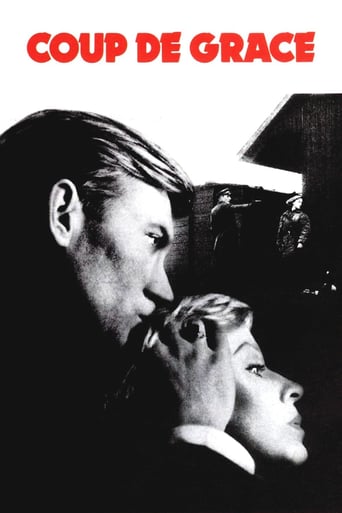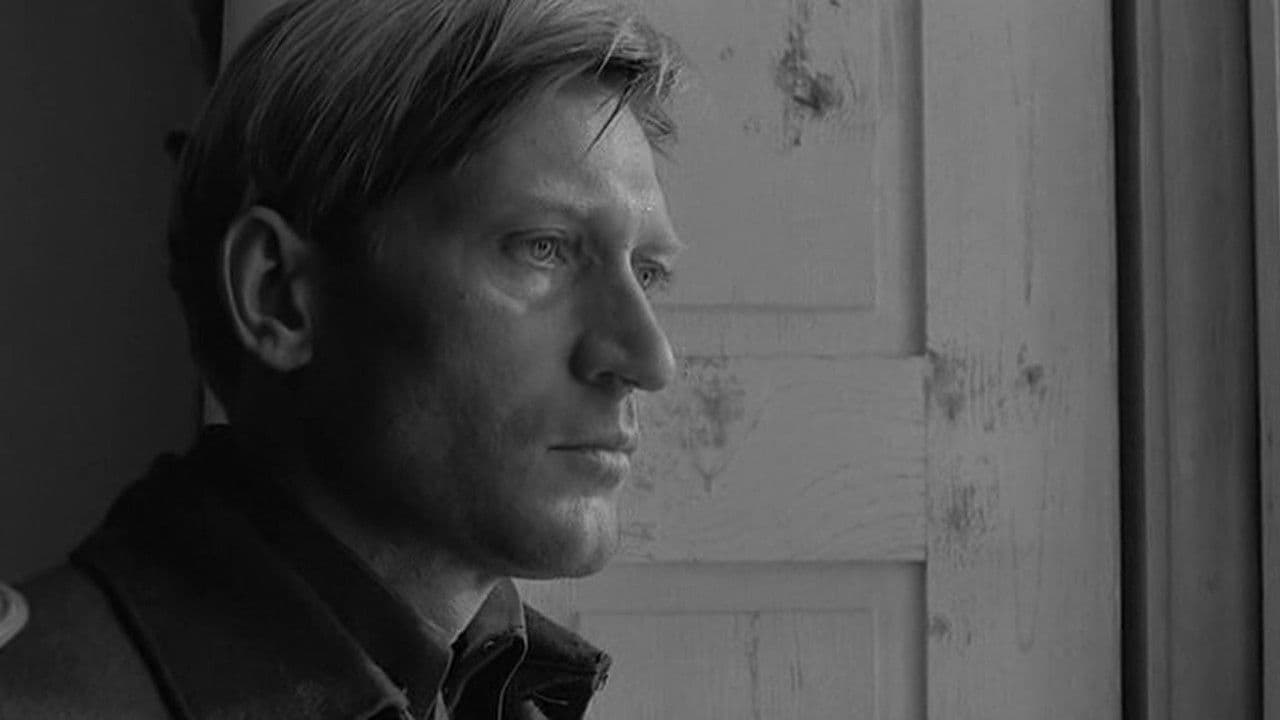albrechtcm
Coup de grâce refers, of course, a finality. Often it means a bullet to the head or something similar to make certain the subject is dead. The original title is Der Fangschuß.In this German and French language film, covering the period just after World War One, and filmed in a dull black and white that evokes the drab, colorless and perhaps hopeless world for many in the war's aftermath. Set in ravaged Latvia where the Czar had previously allowed a number of aristocratic wealthy Germans to continue to own estates with sumptuous homes. Among these, Countess Sophie de Reval has allowed herself to become attached to the promise of Communism. Despite the German Empire's collapse, German troops nevertheless have been stationed in the region, ostensibly to protect the German citizens from Bolshevism. Since this was formerly a part of Mother Russia, many locals want to see the return of Czarist Russia of the past while some hope for a republic and others only wanting an end to all the strife and horror of war. They only desire a peaceful home for themselves and their children. One of the German officers who has returned to his former homeland, happens to be a gentleman the countess has known since childhood. Once they meet, her former passion re-ignites and when he rebuffs her advances, she begins to throw herself at him. Finally, unable to achieve fulfillment with the officer, the countess releases her sexual desires with others, making this a film destined more for adults, despite the fact that there are really no outright graphic sexual scenes. As mentioned earlier, the drab hopelessness of the period is only accentuated by the low-key black and white film production. This is not an action-packed suspense film, but rather a study in human values and emotions during times of trial. One comment is that the subtitles in English are not well- incorporated into the film and many will find them difficult to follow, especially considering that the film does have a number of abrupt changes of scene. For all that, this is a film many will not quickly forget.
Einar The Lonely
Volker Schlöndorff is one of the most overrated directors of the New German Cinema school, and that shows in some of his most celebrated films, including THE TIN DRUM. His adaptions of literature seldom reach beyond mere illustration and even so Schlöndorff never seems to know what the point of his stories actually is.DER FANGSCHUSS/COUP DE GRACE is one of his more watchable works, which might be largely due the fine, atmospheric B/W photography. But compared to Margarete Yourcenar's novel Schlöndorff's inability to adopt a proper point of view becomes apparent. The novel is told in first person by the main character Erich von Lhomond; yet in Schlöndorff's version it is never clear if it his or Sophie's story. The erotic obsession Sophie has for Erich, mixed with political adversity, which is so crucial for the story is almost completely missing in the film. It is rather supposed than being actually shown and acted out. Unless you have not read the book you cannot measure Schlöndorff's failure to convey what's actually going on between these two.The greatest flaw is the miscasting of the director's wife Margarethe von Trotta, who is not only a mediocre actress but who is visibly at least 15 years too old for her character, leaving it pointless and unbelievable. Trotta sucks so badly in her part that it makes the whole film a pain to watch every time she appears on screen.One of the few truly enjoyable moments is the final screen appearance of legendary actress and Pabst veteran Valeska Gert (THE JOYLESS STREET) in an eccentric supporting part - even though her black dyed hair, heavy make-up and curious antics make her hardly a convincing Baltic German landowner lady of the early 20th century.DER FANGSCHUSS is a pretentious misunderstanding, like most of Schlöndorff's work.
Bob Taylor
In a depopulated part of northeastern Europe, desperate men are fighting a hopeless, pointless war after the Great War has ended. It is the winter of 1919-1920 in Latvia, and the Treaty of Versailles will soon establish the independence of the Baltic states. Schlondorff has taken Yourcenar's novel and made a wonderful mood piece out of it. The acting is great: Matthias Habich is stiff and uncomprehending, Margarethe von Trotta is warm and lively as well as passionately Bolshevik, Valeska Gert, whom I remember from a Louise Brooks silent film, is the half-crazy aunt.Schlondorff's films are tremendous literary adaptations that stand on their own as film creations. I see the world a little through his eyes, just as I see it through Renoir's, or Bertolucci's, or Altman's.
K Banerjee
I had never seen any of the work of Schlöndorff prior to watching this film, so Fangschuß came as an overwhelming surprise, a movie whose pathos and displays of cinematic brilliance (Igor Luther) seem like something between the thanatotic films of Bergman and the dreamlike confusions of some of Fellini's work-- Through a Glass Darkly and La Dolce Vita come to mind. More then any film I've ever seen, Fangschuß seems to capture that terrifying collapse of ones life into a sort of unpredictable madness and ambiguity, the torture that the films personal relations depict overshadowing the brutality of the war itself, in a way that all the while juxtaposes the themes of love and death in a way I had hitherto not thought possible. Certainly not light watching-- but I'd recommend this film to everybody, especially since so few people seem to have heard of it.


 AD
AD




